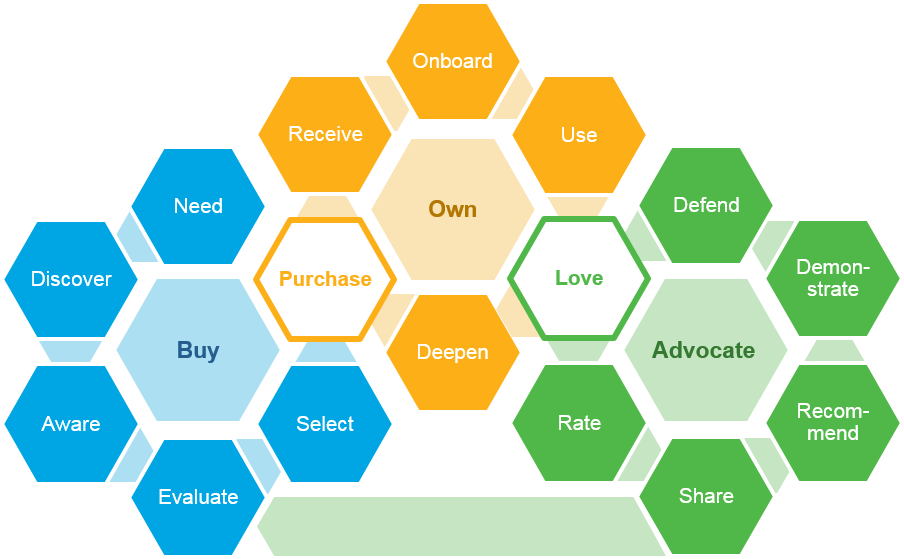Hint, hint: It’s about planning.
In a previous blog, Marketing Definitions 101, one of DirectiveGroup’s team members wrote an article that discussed the differences between various marketing terms – as we use them – in an attempt to call out more subtle nuances.
I’ll be extending that effort in this post. Though my main goal is to discuss methods you can use to devise a remarkable digital marketing program, I want to first speak to the difference between a marketing strategy, plan, campaign and program, specifically how they relate to and build upon one another. Each option has an individual set of requirements and each has its own methods to meet those requirements.
Definitions of Marketing Strategy, Plan, Program, Campaign and Tactics
Below are the definitions we use here at DirectiveGroup. We make distinctions because we have a laser-focus on achieving the business goals we collaboratively develop with our clients. And unless we know what we are doing and where we are going, we’d not achieve the success we do in helping our clients achieve superior performance. So this is how we define it all.
A marketing strategy is generally defined as the overall marketing objective you are trying to attain within the next year or so. It is shaped by your business goals.
The marketing plan defines the full picture of how you expect to achieve those objectives. It will answer questions such as:
- What are my goals and objectives?
- Who is my target audience?
- What is my budget?
Once you have a clear picture of what (marketing strategy) your objectives are and how (marketing plan) you will reach them, you will notice how much clearer your marketing and advertising decisions become.
As your goals and objectives are further developed and more refined, they will become your marketing programs – of which you should have a few during the course of the year. As a general approach, each goal or objective contained in your marketing plan should evolve into an individual program.
A marketing campaign is a time-bound, executable method used to achieve the goals defined by your marketing program. In other words, a campaign has a beginning and end, and each marketing program will have multiple campaigns designed, in total, to reach your marketing program goals.
Finally, marketing tactics are specific methods used within campaigns to reach the campaign objectives. Email marketing, SEO and Pay-Per-Click are all tactics.
Plan For and Measure Success
For us, the entire marketing strategy and everything resulting from that revolves around your business objectives. Therefore, business key indicators (KPIs) – such as ROI – are the true measure of your program success; though, you’ll experience other ‘leading’ indicators along the way – such as social engagement and other forms of audience interaction. The leading indicators are beacons that allow us to know we are moving in the right direction, so we measure them, but ultimately it is the handful of main business-level KPIs we are seeking.
So after you determine, specifically, what you want your program to achieve, you’ll need to set your parameters – such as timeline and budget – in order to measure your success.
However, sometimes the answers you seek are not readily apparent. Sometimes, it’s not as easy as tracking increased sales. It is oftentimes very challenging to find causal relationships between awareness and brand building with sales.
Because of this, you’ll have to find tools to help you measure your progress and ultimate success. In order to save you time, I am including a few tools you might consider. Check them out; you may want to use them too. Some are free, some have free trials.
- Online Behavior, Conversion & Goal Tracking: Google Analytics. Google Analytics can used in a simple way just to track website visitor behavior, or in a more sophisticated way for deeper understanding of prospects and customers.
- Social Media Monitoring, Analytics, and Management. Pamorama [http://pamorama.net/2013/05/12/50-top-tools-for-social-media-monitoring-social-media-analytics-social-media-management-2013/] includes 50 tools in this article.
- Email Marketing. There are many options such as iContact, MailChimp, aWeber, etc. All have lots of information about how to be successful, as well as helpful tools such as analytics and templates.
Here are a couple of other sources of information about tools that might be helpful for you to review:
- 46 Digital Marketing Tools to Make Your Life Easier – Patrik Dholakiya
- How to Calculate Share of Voice for Organic Search – Peter Meinertzhagen
Ideas to Create an Effective Marketing Program
So, now that we have useful tools and tracking and measurement metrics in place, what’s the next step? How do we develop a truly effective digital marketing program?
We definitely recommend a systematic approach, but to start with, consider these ideas as you build out your program:
List your goals: determining your direction is the most basic and fundamental function of any program. Your goals should be: realistic, specific, and measurable.
Determine an approach: you’ll want to consider every possible aspect, from your target audience, message, budget and social channels – to name a few. From here, you will develop some specific campaigns that combine an understanding of both your goals and your market research findings.
Know who you are talking to: if you haven’t segmented your audience and developed personas, do so, as this is of immeasurable value when determining tactics and messaging.
Reach your intended audience: this requires specific tactics, such as search engine optimization (SEO), social media marketing, either paid or organic, or both, emails, blogs and retargeting. Pay-per-click (PPC) and other forms of paid advertising should also be evaluated and implemented.
Relate, and have a good conversation: your message and offerings must be relevant to your target audience if you want to effectively form a relationship with your audience. To the best of your ability, make sure it a conversation and not a one way dialogue.
Integrate multi-media, such as images and video: this will significantly strengthen your program’s effectiveness. Not only do our brains process visuals much quicker than text, images create a more emotional connection. Which may help you build a stronger brand with greater awareness and familiarity.
Make best use of social media channels: careful consideration will help you determine which social media channels will best enhance your online presence. It’s important not to spread yourself too thin. You must be able to nurture, with relevant content and attention, each channel you commit to. Social media, if done properly, will increase the reach of your program, and is great for brand awareness as well.
Consistency is key: brand consistency throughout your entire program is fundamental to its effectiveness and ultimate success. Each element builds upon the others, solidifying your program and helping your audience to become increasingly aware of your brand, your message, and your products and services such that they ultimately choose to buy from you.
Wrapping It All Up
As a reminder, your marketing programs must be derived from a strong marketing strategy, where you’ve defined your marketing objectives based upon your business plan. It’s vital your programs are cohesive and consistent. And always realistic, specific, and measurable.
Your derived campaigns should integrate appropriate online tactics that will work together to deliver results, either or both lead generation and brand awareness development. Take note that a survey from Gartner Research found that lead management programs that integrate four or more digital channels outperform single or dual-channel programs by 300%. So make sure that your programs are built with campaigns that use a breadth of appropriate online tactics selected based on your goals and your target audience.
By using your marketing strategy as your touchstone and following these guidelines, you will ensure your marketing programs will lead – with certainty – to your successful business growth.
Image source: Gartner.






